Our Board Members ensure the charity complies with legislation and has good governance.
In 2008 the six Australian State Networks signed a Memorandum of Understanding which in turn lead to the development of a Constitution for a national organisation, Polio Australia, and its incorporation later that year.
Two representatives from each Member Network are appointed to the Board of Polio Australia, each for a two-year term. (A second organisation representing polio survivors in Victoria signed the MOU in 2015. Each Victorian organisation now has one representative appointed to the Board.)
At least one of the Board members nominated by each Member Network must be a polio survivor, so that at least 50% of the Board are polio survivors. It is the intention of the Member Networks that at least 75% of the Board be polio survivors.
The Board also has capacity to appoint three Independent Directors for specialist roles. These positions are all currently filled.
There are two Sub-Committees dealing with: 1) Governance and Risk Management and 2) Finance. These Sub-Committees meet separately and report at the Board Meetings.
Brief profiles of the current members of the Board are given below.
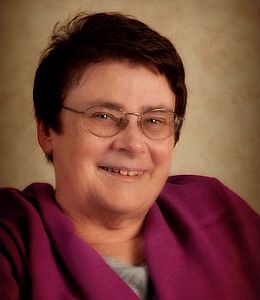 | Gillian Thomas For 25 years I have worked for Polio NSW [previously known as Post-Polio Network (NSW)] on a voluntary basis. I was a member of the original Working Party set up in 1988 to establish the Network, was subsequently elected as Secretary, and in 1997 became the Network's President. I was also the Editor of the Network’s highly regarded quarterly newsletter Network News from 1989 to 2012. In 2002 I was honoured to receive an inaugural David Bodian Memorial Award from the International Post-Polio Task Force in recognition of my work for polio survivors, while in 2004 I was invited to serve on Post-Polio Health International's Consumer Advisory Committee. In January 2009 I was delighted to be awarded an Australia Day Community Service Award from Randwick Council for my outstanding service to polio survivors and the community. I passionately believe in the need for a national voice for polio survivors and my efforts culminated in the highly successful meeting of all Australian State Polio Networks in May 2007 and the unanimous agreement to form Polio Australia. Polio Australia is now a reality and in 2008 I was elected its inaugural President. At the 2012 Annual General Meeting, having served two consecutive terms as President and being constitutionally ineligible to re-stand at that time for this position, I was elected as Vice President. At the 2017 Annual General Meeting, upon the retirement of John Tierney AM as President, I was re-elected to that position. |
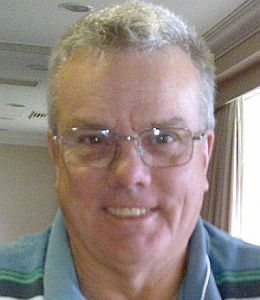 | Brett Howard Vice President (South Australia) I contracted polio in 1953, aged 4. I was not hospitalised at the time but was treated at home with a District Nurse visiting at least twice a week for physiotherapy exercises and assessment. My right leg was always smaller and weaker after that time and my sporting prowess was very poor, although I did play baseball for a couple years at High School and completed several bush walks in the Adelaide Hills. I have had a fascination with powerboat racing since 1968. I become a member of the South Australian committee of the Australian Power Boat Association and qualified as an Australian Referee in 1982, a position I have held since. I have officiated at several Australian Championship Events in Australia and New Zealand. In 1999, I became a Time Keeper for the Under 17s and 19s Australian Rules football for three seasons before taking on the role of Team Manager for the Under 17s for 4 years. I was then promoted to Under 19s, then Under 18s Team Manager until end of 2014. I am currently with the State Under 16 team as Property Manager, a job I have really enjoyed for the past four seasons. In 1966, I started an apprenticeship as a fitter and turner and did several post trade courses and qualified as a toolmaker and heat treater. In 1996, I became a Trainer with the Apprentice Training Centre before it closed the following year. I continued in the tool room until 2005, when lack of stamina prevented me from completing a full day’s work. I was then employed as telephone salesperson, which also proved debilitating, forcing me into an early retirement in 2006. In 2010, I was elected as President of Polio SA, and then nominated to the Board of Polio Australia at the 2010 AGM. At the 2012 AGM, I was elected as Secretary of Polio Australia, then Treasurer in 2013, a role I have maintained since then. I am one of two representatives for South Australia and work with other Members of the Board to further the Mission of Polio Australia. As many Australian-born polio survivors are in the ageing demographic, I strongly support the plan to connect with and recruit younger migrant polio survivors to become more involved in Polio Australia and the state networks. |
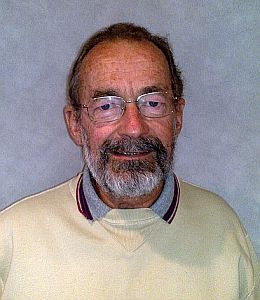 | Alan Cameron Treasurer (New South Wales) Born in 1949 my life was the pretty standard model of school and sport until 1963 when polio got a grip, even though immunised. After 3 months in Prince Henry, Sydney, I returned home to restart school and sport with not much more damage than a limp left arm. Being the recipient of schoolyard bullying taught me a few really good life lessons which no doubt changed my life positively. Even now, there is an inability to accept “no” or “it can’t be done”. School led to university for a B.Com (Marketing) with a bit of law and accounting thrown in. Sporting interests included being a fast bowler in cricket and a fast driver in rally cars, both occupations seemingly at odds with having one useful arm. See, it can be done! Employment for nearly 30 years was with TNT in shipping and transport, and for the majority of the time running operating divisions in General Manager or Executive GM roles. Off line functions included GM National Development, Chairman TNT Shipping and Development Superannuation, a year seconded to Dept of Defence, plus a few other responsibilities that provided an interestingly varied career. Running a shipping line from Perth to Darwin via the North West ports required regular consultation with the Northern Land Council, the Kimberley Development Corporation, Kalumburu community and many other stakeholders in that part of the world I still hold dear and try to visit most years. Leaving corporate life in 2001, I owned and ran a business providing logistics support to United States Navy in Singapore and northern Australia for three years. Post retirement has included being Treasurer for Polio NSW, becoming a member of the local Rural Fire Service on the South Coast of NSW, and more recent membership of the Polio Australia Board, which I joined in 2017. This was stimulated largely by the recognition of the supporting role Polio Australia can provide in the future to the state networks as our membership ages. Hopefully, my business background can be of assistance. Fortunately, the late effects of polio have had seemingly little effect so far, although I concede to running out of steam faster than some years back. I still enjoy fishing and travelling around Australia in a caravan most years, and heading overseas from time to time. |
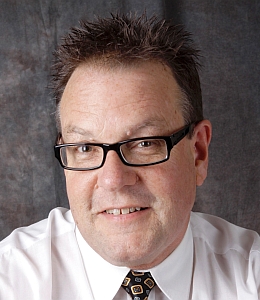 | Gary Newton Secretary (Independent) Gary Newton is a semi retired, paralytic polio survivor, media presenter, and disability/pro-vaccine campaigner who has worked with Polio Australia as an Independent Board Member since 2016. Gary is committed to fulfilling Polio Australia’s Mission to help educate health professionals and polio survivors in the management of the Late Effects of Polio, including reaching out to younger polio survivors. Gary firmly believes in good governance, lobbying and advocating for recognition and appropriate service provision for Australia’s polio survivors whilst also creating positive visibility in the community through his ongoing public speaking engagements with Rotary and many other groups. In 2018, Gary travelled to New Delhi and Vishakhapatnam, India and supported the work of Rotary, WHO and its partners in helping keep India polio free through the Global Polio Eradication Initiative. Gary is a highly regarded Lee Murray Academy trained Radio, TV and Voice Over Presenter with over 40 years industry experience. He also runs his own successful small business in Geelong, which he established back in the 90's. |
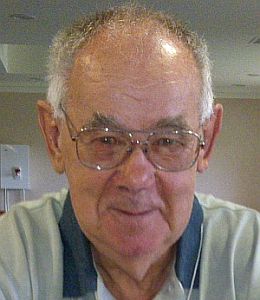 | Arthur Dobson (Tasmania) I contracted polio in November 1952 at the age of 6. After leaving hospital, I was transferred to St Giles Home for Crippled Children where I resided for several years before returning home and attending the local school in callipers. I was later appointed to the Board of St Giles and have now been a director on that Board for over thirty years. In 1972 I had a motor accident which resulted in multiple breaks in both legs requiring me to learn to walk for the third time. I was a self employed farmer, specialising in dairying but I had to leave the farm in 1998 due to the late effects of polio. Earlier that year I was involved in the formation of the Post Polio Network - Tasmania Inc, taking on the role of Public Officer and several years later I took on the additional role of Secretary and continued to hold both positions until that organisation was wound up in 2012. I am continuing to publish a quarterly newsletter 'TAS POLIO NEWS' which is available on subscription and the members of the former Post Polio Network are hoping to keep in touch through an informal social network requiring no administration. Since attending the Polio 2000 and Beyond Conference in Melbourne I have been a strong supporter of a national body and am proud to have been elected as the inaugural Vice President of Polio Australia. At the 2012 Annual General Meeting, I was constitutionally ineligible to re-stand at that time for this position, having served two consecutive terms. I was honoured to be nominated for the Australian of the Year Awards for 2013 and was one of four finalists in the Tasmania's Local Hero section. |
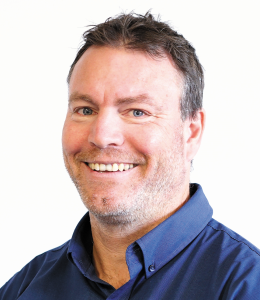 | Ross Duncan (Queensland) Ross is Executive Manager, Member Services at Spinal Life Australia Holding a Master of Business Administration through the University of South Australia, Ross has built his expertise and skills across a broad range of sectors. He has worked for many organisations both in Australia and internationally, including the CSIRO, RSPCA, the Sunshine Coast Council and the State Library of Queensland. While employed with Sunshine Coast Council, Ross played a key role in the amalgamation of the library services of three former councils, leading to council being awarded the best public library award in 2008 by the Queensland Public Library Association. He is passionate about supporting Spinal Life members to live an accessible, equitable and empowered life, particularly through advocacy, working with individuals and all levels of government to achieve positive outcomes. |
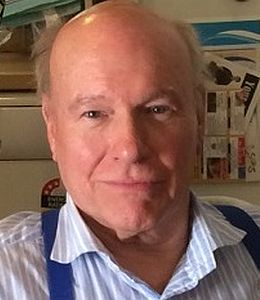 | Peter Freckleton (Victoria) At the age of six, I was hit by a speeding taxi, resulting in a broken thigh bone and a lengthy spell in traction. I contracted polio while learning to stand again. Initially I had almost total paralysis, being unable to move my limbs or lift my head. After being sprung from Fairfield Hospital, I regained upper body strength, but the legs remained paralysed, so since then I have needed two callipers and crutches to get around. I studied Law/Arts at Melbourne Uni, and was a tutor at Monash and Melbourne. Subsequently, I was granted a French government scholarship and obtained a doctorate from the University of Paris. On returning to Australia, I became a barrister at the Victorian Bar, which has been my main profession, later branching into French legal translation. I joined the Board of Polio Australia in February 2018, after meeting people involved in it, and was impressed by its endeavours to date. Bringing attention to polio issues on a national basis seems essential. An organised body is clearly the best way of achieving that, while drawing on individual knowledge and life experiences. I hope to contribute as a result of experience sitting on a number of committees over the years, which has exposed me to policy discussions and collective submissions. Professionally, I have often argued the cases of others, and hope some of that grounding will occasionally be relevant. I believe it is important for Polio Australia to continue and further develop its contact with government and officials to provide information as to the current and future requirements of polio survivors. Concomitantly, media contact to promote public awareness is crucial in my view, and it is great that there have been excellent interviews and other interactions with the ABC in particular. That activity seems extremely valuable and worth expanding if possible. |
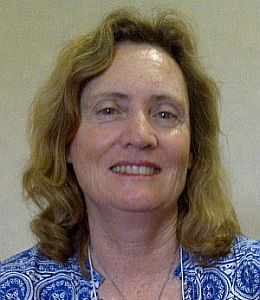 | Jenny Jones (Western Australia) I am passionate about helping, educating and listening to polio survivors, their families and health providers. In 1960/61, as a 5 year old, my life changed forever due to polio. Fortunately, I had a wonderful recovery period in my late teens to my middle forties. I graduated from university, worked as a teacher, married and had 3 children, and now have 5 beautiful grandchildren. At high school I became very interested in the nutritional connection between a healthy diet and a healthy body. This lead me to study Home Economics at Curtin University, majoring in nutrition. I completed the Diploma of Education and, later, a Bachelor of Education. I taught Home Economics at several high schools in Western Australia. I also enjoyed golf and, particularly, swimming, which I taught, coached and refereed. This has provided me with an excellent understanding of the importance of exercise. When the Late Effects of Polio started limiting my physical activities, I decided to study Holistic Counselling, and soon had a job working as a counsellor. The skills I gained from this experience include compassion, empathy, effective communication, and the importance of social gatherings and friendships. For the passed 4 years, I have been the President of a women's group called the Executive Women's Forum, which has helped me to become a confident speaker, organiser, and advocate for progress and cultural change. I joined Polio Australia’s Board in 2009, and currently hold the position of Secretary. I am also the Board Treasurer for PolioWA, where I also work as a volunteer. I am enthusiastic about making a difference to polio survivor's lives through sharing my life-skills and, in particular, how I manage the LEoP. My passion for nutrition, swimming, friendships, and positivity are all party of my contribution towards making Polio Australia a Board of Excellence. |
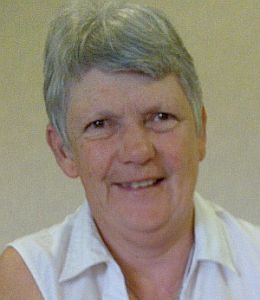 | Tessa Jupp OAM (Western Australia) Tessa is a Registered Nurse (RN) – married for 20 years to Colin Jupp, a polio survivor with a permanent tracheostomy, who died in 1989 of respiratory failure. She has two sons and six grandchildren. Tessa did her General Nursing Training at Fremantle Hospital where she worked as a Staff Nurse. She gained rehabilitation experience at Royal Perth Rehab Hospital, working in orthopaedic and spinal injury wards. Tessa then went on to get her Midwifery Diploma at St Anne’s Maternity before marrying Colin. She also has 10 years’ experience working in a GP practice. Tessa started and has run the Post Polio Network of Western Australia Inc (PPNWA) since 1989, and established a free in-house clinic - Polio Clinic WA - in 1990. As the CEO and clinic nurse, Tessa continues to conduct regular metro and country polio clinics, as well as researching and promoting the use of nutritional supplements in the management of post-polio health problems. She has presented at numerous National and International post-polio conferences over the years, and regularly speaks to Rotary groups, not-for-profit organisations, and health service providers. In 2000, Tessa was instrumental, with the help of other health professionals, in persuading the WA Health Dept to set up a free outpatient clinic within the public Rehab Hospital system, for people ageing with a long-term disability, the prime users of which have been polio survivors. This Late Effects of Disability Clinic was later relocated to the Fiona Stanley Rehab Hospital. Tessa is one of three authors of a 460-page book on the history of polio in WA, which was released in 2013. It includes stories of the polio experience from more than 200 WA polio survivors and also records the effects of polio on hospitals, the community and on government policy making at the times of the polio epidemics in WA and later consequences of polio. For her post-polio work, Tessa was awarded a Lions Club International Exemplary Service Award in 2005; in 2011 she was made a Rotary Club International Paul Harris Fellow; and at the Queen’s Birthday Honours Awards in 2016, she was awarded an OAM (Order of Australia Medal) for “Service to Community Health”. Tessa was a Foundation Member of Polio Australia in 2008, and has served on the Board as one of the two WA representatives ever since. |
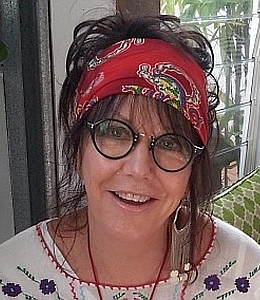 | Sue Mackenzie (Independent) I contracted polio at age 2 in 1948 followed by two years in a Crippled Children’s Home in Auckland, NZ. I had many operations to alleviate the effects of polio on my right leg and wore a calliper until age 13. Despite my career choices being limited, I had interesting and varied career roles, initially as a teacher and then into sales rising to television station Manager and finally to setting up and operating two retail stores. I married and had a family of three. About 10 years ago, my polio leg became weaker and I found myself falling over. My enquiries as to why this was happening led me to Polio Australia where I discovered there were many other polio survivors who were also suffering the Late Effects of Polio. Over the past 4 years, I have taken an active role in Polio Australia, speaking to scores of Rotary Clubs, and coordinating fundraising functions, including two Brisbane-based 'Walk With Me' events, raising much needed funds ($50,000) and raising awareness of the needs of our post-polio community. In 2014, I was appointed to the Board of Polio Australia as an independent member. In this role, I helped initiate funding from Spinal Life Australia. In 2017, I became a member of the Rotary Club of New Farm and am now a Board member. In 2018, I joined the District 9600 Rotary Foundation Polio Committee, helping to raise funds for Rotary International's ‘Polio Plus’ program and to maintain and broaden the Rotary International connection to Polio Australia. I’m currently setting up three fundraising events in 2018 for the Rotary Club of New Farm to support local charities, including Polio Australia. Prior to joining Polio Australia I had:
|
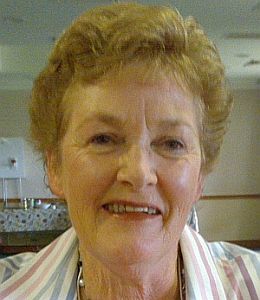 | Billie Thow (Tasmania) I was born in 1949 and contracted polio 2 years later. I came home from hospital in a Thomas split, then wore callipers on both legs until my teens. I qualified as a hairdresser and worked full time for six years, then married and had three sons. I returned to hairdressing part-time in hospitals and age-care facilities, where I’ve been working for more than 40 years. I have seen many changes in the way residents are now cared for. I volunteered with Life-Link Samaritans Tasmania for over twenty five years in the roles of phone befriending, team-leader, Board Member, and Vice President, all of which I found to be very rewarding and helpful in my work and personal life. Although I no longer have an active role with this organisation, I am still contacted regularly to share my experience. In my late forties, my GP diagnosed that I was experiencing the onset of post-polio, which I had no knowledge of. He was able to find and pass on information he found from New South Wales and Victoria. In 1998, I was at the formation of the Post Polio Network - Tasmania Inc, which was wound up in 2012. Since then, I have been available for phone calls and support. I am now part of the University Tasmanian School to Medicine Patient Partner Program at the Launceston General Hospital with undergraduate medical students in the learning partnership so future doctors are equipped to provide patient centred care. I joined the Board of Polio Australia in 2008, when the organisation was first incorporated. The growth we have achieved since that time has been a dream come true. I am very proud of our development, especially in the area of clinical education. |
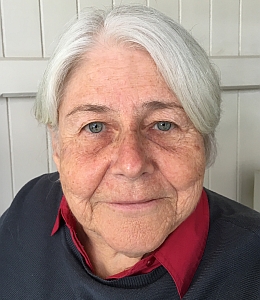 | Dr Christine M Tilley (Queensland) I have the lived experience of a polio survivor. I contracted bulbar polio at 5 years of age. I spent 9 months in an iron lung and subsequently have been very affected by the after effects of the virus. My work background was as an academic primarily - with a Doctor of Philosophy qualification. I have Honorary Life Membership of Spinal Life Australia (Queensland). I was keen to be on the Board of Polio Australia, because of its track record of national advocacy and support for the larger polio community. I commenced representing Spinal Life Australia on the Board in November 2016. The philosophy behind Polio Australia is synchronistic with my personal philosophy. I was the inaugural President, Post Polio Support (Queensland), 1991 – 1995; Vice President, Paraplegic & Quadriplegic Association of Queensland (now known as Spinal Life Australia), 2001 – 2003 and Board Member, 1991 – 2003. I served as an adviser and Board Member for numerous Queensland University of Technology committees, and other government and community committees, for some two decades that required skills, resulting from a sound understanding of Governance mechanisms and processes. Polio Australia’s most important role(s)/goal(s) now and into the future have been fulsomely identified in the 2018 – 2020 Strategic Plan, which had been discussed rigorously by the PA Board at the 2017 face-to-face Canberra meeting. |
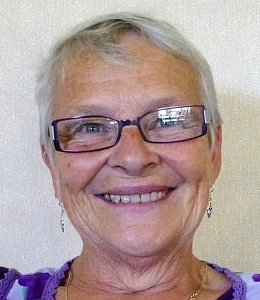 | Bev Watson (Victoria) I have been the Chair of Polio Network Victoria since 2013 and a Board Member of Polio Australia since that time. I contracted Polio at the age of six (6) with resulting paralysis from the waist down. Following a long rehabilitation period in hospital, I used full calipers and crutches for mobility until my mid 20’s when a manual wheelchair became my preferred method of mobility. I am currently employed with a Local Government in Victoria in the role of Building Inclusive Communities/Rural Access Co-ordinator, a role that I have held for more than nine (9) years. I have a Bachelor of Social Work with twenty (20) years’ experience in the areas of Mental Health, Family Violence, Relationship Counselling, General Counselling and disability. In 2017 I was awarded Rotary’s “Shine On” Award for promoting the important connection Polio Support Groups have with the Polio community of Victoria. As one of the two Victorian State representatives on the Board of Polio Australia, I believe being a Board member provides me the opportunity to convey the thoughts and vision of Polio Network Victoria (PNV) and the Support Groups under the umbrella of PNV. Polio Australia has a role to play now and into the future by continuing to promote positive outcomes for Polio survivors and to continue to advocate for increased education/information for health professionals who are responsible for providing appropriate healthcare to ensure good health into older age. |
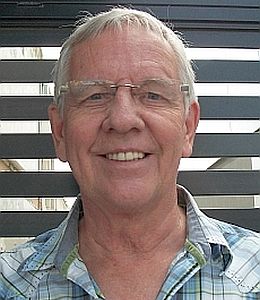 | Peter Wierenga (South Australia) I was diagnosed with polio at the age of 8 in 1954 in Edmonton Alberta Canada. I spent 2 months in hospital in isolation with no visitors allowed and unable to walk. I gradually regained strength and was transferred to a recovery rehab hospital and became a great wheel chair racer. I was involved in setting up a library for the polio patients there. I am one of the luckiest polio survivors as I went home 2 months later, able to walk, and with no visible physical disabilities. I moved to Adelaide in 1974 to marry a lovely Aussie girl, Anne. It was there that I attended Adelaide University, graduating with a BA majoring in History and a Diploma of Education. I became a High School History Teacher and Faculty Coordinator, which I enjoyed for 30 years at a number of High Schools in South Australia. When I turned 60, Anne noticed that I was becoming more fatigued in the evenings and I felt the lack of energy was starting to affect my work as well. I decided to retire at the age of 62. A physiotherapist friend then introduced me to the Late Effects of Polio, which led me to join Polio SA in 2008. In 2011, I was elected treasurer of Polio SA, a position I still hold. I still do occasional relief teaching as well as mentoring Tabor College student teachers when they do a practicum. I played and coached baseball for a number of years and played golf to keep active. I no longer golf but I do walk for 30 minutes each day, go to a COTA Strength for Life exercise class once a week, and participate in a hydrotherapy class 1 hour a week. Anne and I have 2 great children, Todd and Lauren, and 2 fabulous grandchildren. |
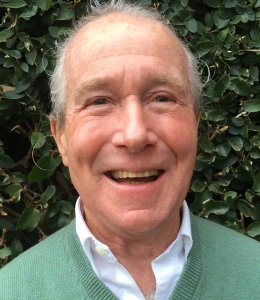 | Noel Will (Independent) Prior to retirement, Noel was a teacher for 16 years, and in the financial services industry for 22 years, primarily as a financial planner. As a teacher, Noel worked in the former Technical Schools Division of the Victorian Education Department, initially as a classroom teacher and then as a head of department, with three of those years on secondment in Papua New Guinea. In the financial services industry, Noel was an executive officer with a teachers credit union, followed by sixteen years, as a financial planner. He was initially a consultant, then a franchisee, and finally, in partnership as a business owner holding a Dealer’s Licence in Securities. Noel has a Bachelor of Education, a Diploma in Financial Planning, and a Graduate Diploma in Marketing. He has been a director of two private companies: a vineyard, as a major shareholder; and company secretary of Community Bank®, a community company operating a franchise of the Bendigo Bank. Noel cares for and has a genuine interest in people, and can communicate effectively across a broad range. He has experience in strategic planning, and clearly understands the importance of operating a company ethically, effectively and profitably. Noel’s connection with polio is through his brother-in-law, of 40 years, Gary Newton, who is a polio survivor. |




